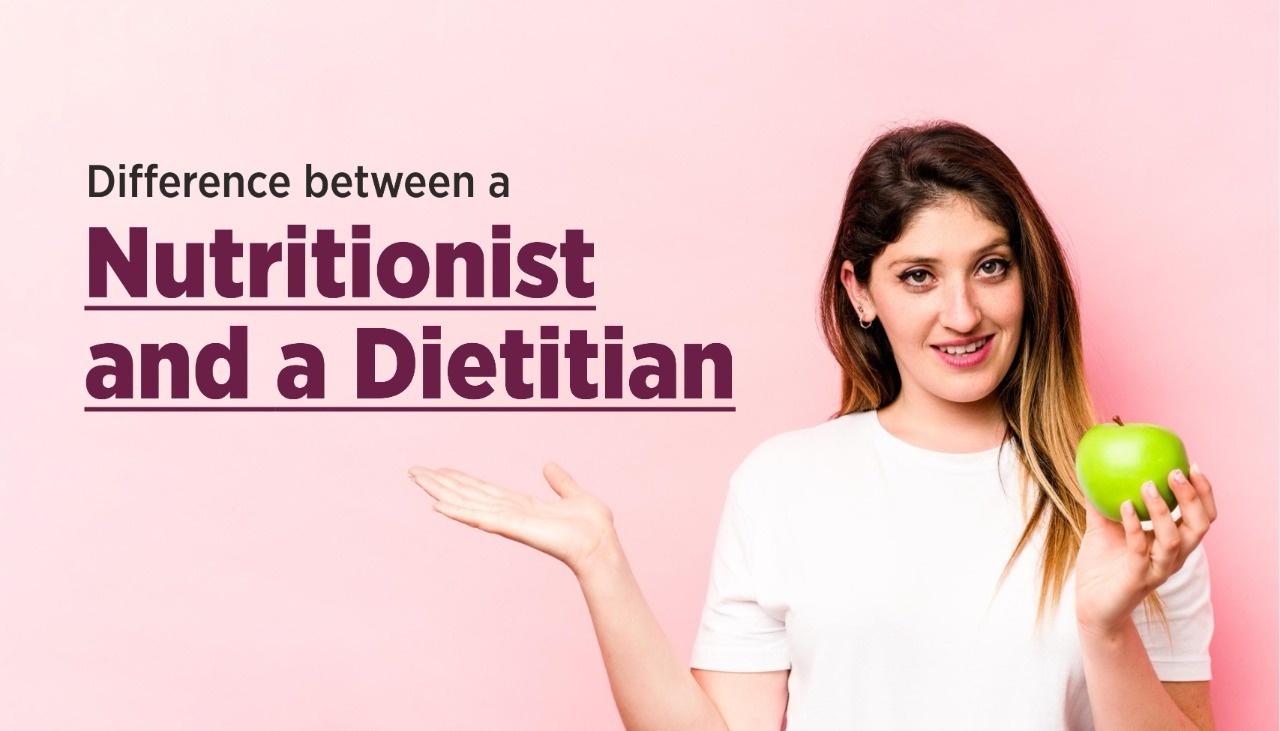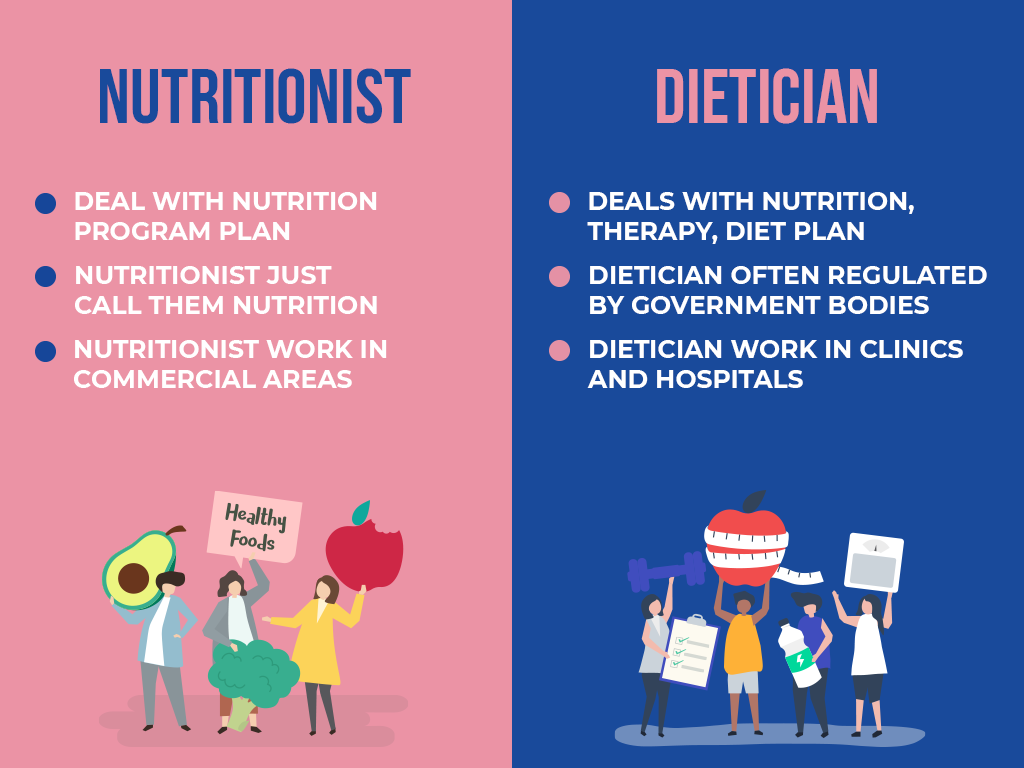All Categories
Featured
Table of Contents
The kinds of Nutritionists are: and. The previous are those people that make use of the clinical approach to study nutrients, both as private substances and as they communicate in food and nutrition while the latter are specialists who aid in diagnosing the nutritional issues of communities and in locating remedies to those issues.
: They collaborate with health cares and worldwide health organizations.: They are accountable for large food preparation and service.: They are experts in nourishment and aging. They are Board accredited in Gerontological Nutrition with the American Dietetic Association.: They are mostly included with nutritional relevant research in the medical aspect of nutrition in condition states, public element on main, secondary and often tertiary health and wellness prevention and foodservice aspect in problems entailing the food gotten ready for people.
How Do I Find A Community Dietitian Service?
: These work as source people for the media. Dietitians' know-how in nutrition is typically taped for television, radio, and newspapers-- either as a professional visitor viewpoint, normal writer or visitor, or for source, restaurant, or recipe development and critique.: These work under private technique. As clarified above, all dietitians are nutritionists but not all nutritionists have the credentials and credentials to be called dietitians.
This indicates specifically the same point as Registered Dietitian (RD), a term that has been in usage for a very long time. All RDs are RDNs yet some pick to call themselves that and some do not. Additionally making complex matters are permit needs. While certification to become an RD or RDN is regulated by the Academy of Nourishment and Dietetics a nationwide organization licensure is regulated by individual states.

In order to supply clinical nourishment therapy and certify as service providers for insurer, a dietitian needs to be certified by the state. According to the Bureau of Labor Data, the need for dietitians and nutritional experts is anticipated to enhance by 20% between 2010 and 2020 this is a much faster growth rate than the average for all professions.
What Is The Best Kidney Dietitian Company Near Me
There are considerable differences in compensation based on expertise, with Scientific Pediatric Dietitians and Milk Nutritionists averaging approximately $90,000. In 2014, The Bureau of Labor Data (BLS) located that the leading 10% of dietitians and nutritionists earn greater than $79,000, and the bottom 10% much less than $36,000 - Personal Nutritionist. A mean hourly wage of $27.62 was determined for both fields, with the leading 10% earning above $38.00 per hour, and the lower 10% earning listed below $17.00 per hour

There is a selection of jobs available in different environments for those that want to function with the public, as well as for those who choose even more research-focused employment. Many obtain right into among these areas in order to aid people live much healthier lives which can be tremendously satisfying.
With existing stats that one-third of the U.S. population is obese, as well as a huge number of senior U.S. residents, dietitians and nutritional experts are most likely to have a more substantial role in the future. My Strategy ranks dietitians and nutritionists at # 53 in their joy index of top 300 occupations with the greatest job satisfaction rankings.
In enhancement to attending a recognized program, the majority of states require dietitians to be accredited or to have professional accreditation, or both.
What Is The Best Weight Loss Nutritionist Company Near Me
Nevertheless, it is essential to note that beginning Jan. 1, 2024, you'll likewise need to hold a master's degree to make an RD/RDN credential. Usual bachelor's levels for dietitians include medical nourishment, dietetics, and public health and wellness. Your core courses may consist of: Food scientific research Chemistry Wellness treatment plan Medical nutrition Biostatistics Microbiology Food service management You'll also need to finish a dietetic internship.

Whether created in law or not, dietitians and nutritionists several times require a similar education and learning. Common bachelor's degrees for nutritional experts consist of nutrition scientific research or an associated technique, such as dietetics, kinesiology, food system monitoring, or biochemistry.
The number of hours you'll require might rely on requirements in the state where you'll work. Whether you plan to gain a credential or not, it's a great idea to finish at the very least one teaching fellowship to obtain valuable experience prior to looking for a full time duty. Licensing and qualification requirements for nutritionists and dietitians vary from state to state.
A Better Local Dietitian?
A professional qualification demonstrates your competence and knowledge in your area. These are not certificate programs. A certificate suggests that you have taken a training program to learn a skill. Accreditation shows your proficiency expands past your education and that you have actually passed a certifying exam. Right here are the leading accreditations for dietitians and nutritional experts.
The titles are essentially the very same. There's no specialist distinction between them, and you're free to choose which one you desire to make use of based on personal choice. To take the qualification exam, you should: Gain a bachelor's degree that's approved by the ACEND Total a dietetics internship After Jan. 1, 2024, you'll require to earn a master's level to get approved for the certification.
The Best Nutritionist For Weight Gain Service?
Bureau of Labor Data puts dietitians and nutritional experts in the very same classification and claims they earn a median annual wage of $69,680. However there is a variety in wages, with the bottom 10% around $44,910 and the leading 10% around $98,830, according to the BLS. Nutritionist and dietitian roles are anticipated to expand 6.6% via 2032, according to the BLS.
This does not imply that a person occupation transcends to the other, as they both have various features and qualifications that might in some cases overlap. If you intend to find out more concerning what makes these careers distinct, keep reading. Dieticians are professionals who aid enhance the lifestyle through healthy and balanced food options.
How Do I Choose A Holistic Nutrition Practitioner Service?
Nutritionist advice concerning nutrition's influence on health and wellness. The area is much less regulated than dieticians; therefore, nutritional experts' degrees of competence and certifications can differ.
There are several distinctions in between dieticians and nutritionists. Below are the training and background specs. Dieticians usually hold a bachelor's level in dietetics, nutrition, or a relevant area. As their careers breakthrough, many diet professionals pursue postgraduate degrees, like a Master's or Doctorate, to be experts in certain areas of nourishment. Dieticians should carry out supervised practical training as part of their education to get hands-on experience in medical settings, community nourishment programs, or food service administration.
Latest Posts
Best Fitness Assessments
Supportive Exercise Routines Near Me (Perth)
Expert Group Training